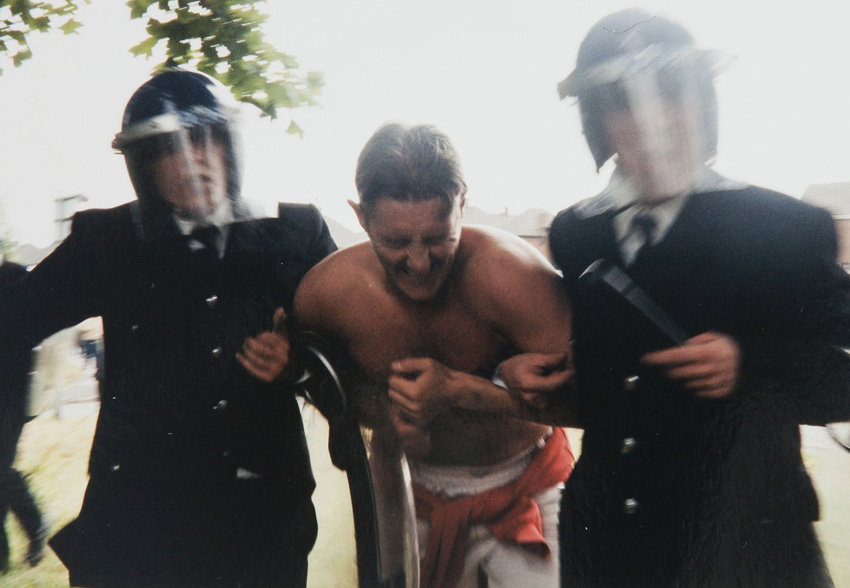A moment from the Battle of Orgreave, Jeremy Deller’s 2001 reenactment of a key episode in the 1984 miners’ strike in the UK.
A Note on the Second Symposium
The second symposium in what came to be called the ‘literary activism’ series of symposia was on ‘deprofessionalisation’. By this I meant, among other things, a ‘critique of specialisation’ – to express, in however small a way, a disagreement with the stranglehold of genre and branding; to explore whether not doing something well could, in some instances, be more creatively productive than being successful (I use ‘successful’ rather than ‘good’ deliberately) at what you do.
The symposium took place on 8th and 9th January 2016 in Delhi, with another day, soon after, in Calcutta. I’m glad that I now have the opportunity to upload six of its papers. Talks which weren’t written up haven’t been included; the symposia still being in their early days, I didn’t have the foresight to have video recordings done. The speakers, in alphabetical order, were the literary historian and critic Rosinka Chaudhuri, the artist Jeremy Deller, the novelist and scientist Sunetra Gupta, the novelist and editor of the Indian Express Raj Kamal Jha, the scientist and novelist Rohit Manchanda, the critic and academic Peter D McDonald, the poet Arvind Krishna Mehrotra, the critic and cultural commentator Ashis Nandy, the writer, editor, and now member of the Pennsylvania Senate Nikil Saval, and myself. The summing up (and this would become a regular feature of the symposia) was done by the University of East Anglia’s Jon Cook. There was a follow-up one-day symposium on the same theme at Oxford University, where Howard Caygill and Nakul Krishna were among the speakers.
I should say here that Raj Kamal Jha has written a new piece specifically for this website, a sort of assemblage incorporating what he’d spoken about in 2016 (an account of the workings of the newsroom); a page from the Indian Express; a hitherto unpublished excerpt from an ongoing work-in-progress in fiction; and sentences from the mission statement.
Besides my own reservations about what professionalisation had come to mean for artists and critics in the age of the free market, I had a scattering of remarks, oeuvres, and figures in mind in the lead-up to my mission statement. The first was Jeremy Deller’s work, which I found as compelling as his testimony that he could neither draw nor paint well. Then there was Brian Eno, who by his own account had limited abilities as a keyboard player, but played the few notes he did on Roxy Music’s ‘Virginia Plain’ to great effect, before going on to make ‘ambient music’, hypnotic with the repetition of the same motifs. I had in mind, too, Joni Mitchell’s comments in a Toronto bar, made as she was emerging from seeming semi-hibernation to sing ‘Sex Kills’ from her new album Turbulent Indigo. Speaking of a sense of disquiet upon reading Plato’s Republic, she said off-hand to her audience that the ‘Socratic society’ would be ‘unjust to the likes of me, because it was a society of specialists. You had to be either a painter or a poet or a musician, but you couldn’t tackle all three. So I would already be pinched in this society.’ Finally, there was the young Tagore’s declaration, as he set about translating Heinrich Heine, that not knowing the language you were translating from shouldn’t comprise an impediment to translation.
I would have liked to have all four – Deller, Eno, Mitchell, Tagore – to speak at the symposium, but was happy that I did get Deller to agree.
Amit Chaudhuri
21.2.2021



